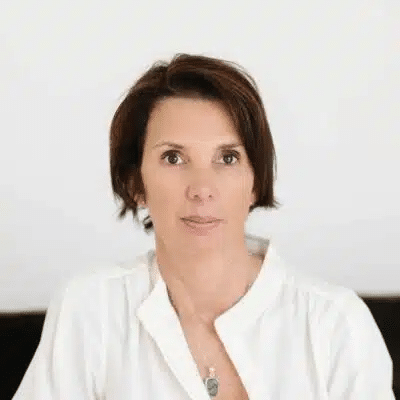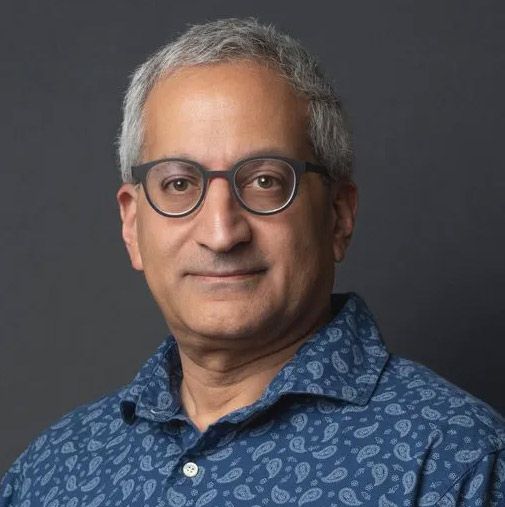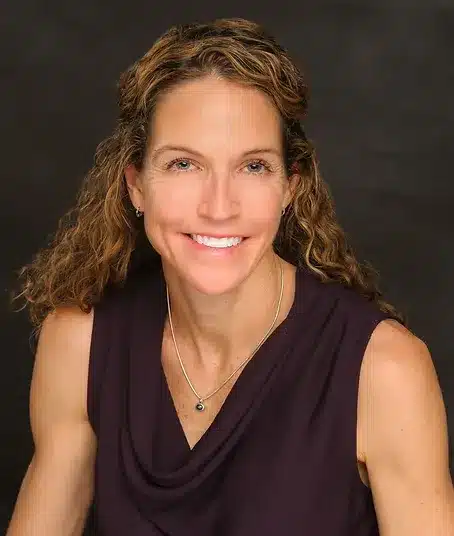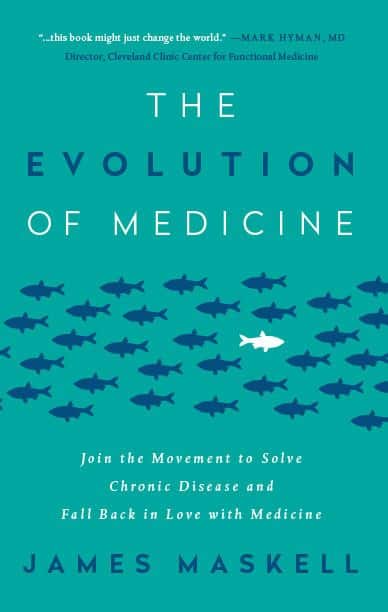'Private Medical Practice: A Win for Physicians and Patients'
— FLCCC Alliance (@Honest_Medicine) November 14, 2024
On this week's webinar, FLCCC Senior Fellows - host Dr. Kat Lindley (@KLVeritas) and Dr. Yusuf (JP) Saleeby - were joined by special guests Dr. Jennifer Fontius and Chris Jackman, APRN-CNP for a discussion on the… pic.twitter.com/ohBlwyOITL
Speakers: Dr. Kat Lindley, Dr. Yusuf (JP) Saleeby, Dr. Jennifer Fontius, Chris Jackman, APRN-CNP
“To practice honestly and build genuine relationships with patients, I had to sever all ties with the system.” — Dr. Jennifer Fontius
The current healthcare system isn’t working well for physicians or patients. Life expectancy is declining, and excess deaths are rising. For healthcare providers aiming to reverse this troubling trend, starting a private practice can be a powerful solution where everyone wins.
For many, the medical field has become an exhausting grind. If you’re a healthcare provider, you’re likely aware of the headaches that come with the job:
- Overburdening insurance regulations
- Rigid pharmaceutical protocols
- Corporate constraints
If you’re feeling trapped in a relentless cycle of overbooked appointments, administrative red tape, and cookie-cutter care models, there is another way.
Independent practice offers a chance to reclaim your profession, focus on true patient care, and bring integrity back to medicine. While the journey is not without its challenges, it is a path paved with meaningful patient connections, professional fulfillment, and medical freedom.
In this webinar, we explore how to start your own medical practice, drawing on insights and lessons learned from four healthcare professionals who dared to break free and redefine what it means to provide exceptional patient care.
This webinar was made possible thanks to the generous donations of our audience. If you’d like to double the impact of your gift, now is the perfect time. Until November 25th, every dollar you donate will be matched up to $120,000, thanks to the generosity of the Good Shepherd Foundation.
The Struggle Within the System
“What I knew was right for the patient often conflicted with what was expected by the hospital system.” — Dr. JP Saleeby
Many physicians find themselves caught between the needs of their patients and the demands of the healthcare system.
Administrative burdens, insurance-driven protocols, and corporate policies often hinder the ability to provide personalized, ethical care. Doctors like FLCCC Senior Fellow Dr. JP Saleeby have experienced firsthand the frustration of this conflict. The pressure to conform to a system that prioritizes efficiency over patient well-being leaves many medical practitioners yearning for a better way to practice medicine.
Starting a private medical practice may seem daunting, but as physicians like FLCCC Senior Fellow Dr. Kat Lindley have demonstrated, it’s a feasible and rewarding path. By opening her own medical practice with minimal funds, Dr. Lindley embraced the challenges and opportunities of solo practice, focusing on building genuine patient relationships and practicing medicine on her own terms.
Four Providers: Different Paths to Private Practice
Each physician’s journey to opening a private medical practice is unique, shaped by individual experiences, challenges, and aspirations. Let’s dig into the stories of four healthcare professionals who took the bold step to start their own practices, redefining their lives as medical practitioners.
Dr. Kat Lindley: Building from the Ground Up

“I decided to jump in and I opened my practice with $5,000 and my doctor bag from medical school, and while I was building my practice I worked in urgent care.”
As a family medicine physician, Dr. Lindley recognized the limitations imposed by the traditional healthcare system. Determined to provide patient-centered care, she opened her own medical practice with minimal financial resources. Working in urgent care to support herself while her practice grew, she learned that success on her own terms is possible even with limited funds. Her story is a testament to the power of determination and a clear vision for ethical medical practice.
Dr. JP Saleeby: Opting Out to Practice Ethically

“I tried to embrace insurance for almost 14 months, but that was a big fail because I was always getting down-coded… So after 14 months, I terminated all my managed care contracts, opted out of Medicare, and started a DPC hybrid practice.”
Facing the constraints of insurance reimbursements and corporate protocols, Dr. Saleeby chose to start his own medical practice, embracing a Direct Primary Care (DPC) hybrid model. By opting out of Medicare and managed care, he established a practice that allows him to spend more time with patients and provide personalized, integrative medicine. His journey underscores the importance of aligning your practice with your values and the benefits of running a private practice that prioritizes patient care over administrative demands.
- 🩺 For Patients: Carolinaholisticmedicine.com
- 🧑⚕️ Training Program for Providers: Priority Health Academy
- 🎙️ Video Series: Whole Body Health
Dr. Jennifer Fontius: Severing Ties to Practice Honestly

“The only way to really practice honestly and have a good relationship with my patients and to do it the way I wanted to do it, I had to sever all ties.”
After years in a solo practice within the traditional system, Dr. Fontius realized that insurance and hospital affiliations were hindering her ability to provide ethical, personalized care. By gradually opting out of commercial insurance and Medicare, she opened her own private medical practice, achieving better work-life balance and deeper patient relationships. Her experience demonstrates that starting a private practice can lead to professional fulfillment and the freedom to practice medicine according to one’s principles.
Chris Jackman, APRN-CNP: Personalized Care in a DPC Model

“I love the idea of being able to think outside the box and not having to follow a preplanned script.”
Transitioning from cardiac surgery at a major hospital to opening his own practice, Chris Jackman embraced the DPC model to focus on holistic, personalized care. By spending more time with patients and creating custom care plans, he has built a medical practice that puts patients first. His approach highlights the advantages of a practice model that values quality over quantity, fostering stronger patient relationships and better health outcomes.
Challenges & Benefits of Starting a Private Medical Practice
Challenges
Navigating Insurance Hurdles
Physicians like Dr. Saleeby faced insurance-driven constraints, leading him to fully opt out of managed care.
“I tried to embrace insurance for almost 14 months… but that was a big fail because I was always getting down-coded. So let’s say taking people off of statins and doing lifestyle modifications, spending like an hour with a patient and getting reimbursed $25 for that.”
Dealing with Medicaid and private insurance companies can be a significant challenge when providers set out on their own. Across the board, all four providers on the webinar agreed that when it comes to insurance, it’s all or nothing, arguing the benefits are few and far between for anyone operating outside the Big Health systems.
Financial Risks & Setup Costs
Starting a private practice often involves financial risks. You’ll need to consider expenses such as medical equipment, liability and medical malpractice insurance, and staff.
Building Patient Trust & Work-Life Balance
Establishing patient trust while maintaining a manageable work-life balance was a common challenge. Dr. Fontius reflected, “I’m happier, and my patients have a lot more time.” Balancing the demands of a new practice requires strategic planning and dedication.
Benefits
Stronger Patient Relationships
By spending more time with patients, practitioners like Chris Jackman create personalized care plans. More than that, Chris forms lasting relationships with his patients that improve care and patient retention.
“I give hugs to my patients every time they leave because we have that relationship and I know them so well.”
Freedom to Practice Medicine Ethically
Private practice allows physicians to provide care aligned with their values. This freedom enables physicians to make decisions based on what’s best for the patient, not what’s mandated by insurance protocols.
Enhanced Professional Fulfillment
It almost goes without saying, providers who call their own shots are happier and ultimately perform better at their jobs.
Key Questions Answered
What Is Direct Primary Care (DPC) and How Does It Differ From Concierge Medicine?
Direct Primary Care (DPC) is a practice model where physicians offer medical services directly to patients for a fixed membership fee, without billing through insurance. This allows for transparent pricing, longer appointment times, and personalized care. In contrast, concierge medicine typically involves higher fees and still bills insurance, offering premium services to patients. DPC promotes accessibility and affordability in the private practice setting.
How Do Physicians Transition to Private Practice?
Transitioning to a private medical practice involves careful planning, including creating a comprehensive business plan, obtaining necessary medical licenses from the state medical board, and possibly opting out of insurance contracts. Physicians like Dr. Fontius staggered her approach by first opting out of commercial insurance and later Medicare.
How to Ensure Financial Viability While Starting?
Managing costs by keeping overhead low, engaging with the community, and building a loyal patient base are key strategies. Dr. Saleeby shared this realistic anecdote:
“In the beginning, it took probably 8 months to a year to be able to pay myself and my staff, and I dipped into my savings and I bootstrapped.”
How Do Private Practices Offer Unique Patient Benefits?
Private practices foster stronger patient relationships, personalized care, and empower patients to take ownership of their health. Chris Jackman highlighted,
“In a DPC model practice, you get an hour with patients… you can create a plan that really revolves around them as a patient, not just a symptom.”
This patient-centered approach can lead to better health outcomes and increased patient satisfaction.
Practical Tips & Resources for Starting a Private Practice
Further Reading

Consider “The Evolution of Medicine” by James Maskell for practical guidance on launching a medical practice. Dr. Saleeby recommends it without reservation:
“Any doctors out there that are looking to start, it’s a good little book… it lays out a plan of action—a step-by-step guide.”
Helpful Resources
- If you’re looking for direct primary care doctors, visit DPCFrontier.com or aapsonline.org.
- For direct primary care doctors who want to be listed, consider joining JoinTheWedge.com through the Stand for Health Freedom organization. They have a network of over 500 physicians, including direct primary care and direct specialist care practices from across the United States.
FLCCC Alliance also has a number of useful resources for both patients and providers:
- Webinar: Choosing a Trusted Healthcare Provider
- Post: 5 Reasons to Change Your Doctor (And How to Do It)
- Video: How To Find The Right Doctor
- Video: Dr. Joseph Varon Joins TND to Discuss ‘How to Find a Good Doctor
- Video: A Patient’s Guide to Finding Aligned Providers
- Webinar: Independent Medical Practice
- Guide: 5 Things to Look For When Choosing Your Provider
Wrapping Up
Starting your own practice is no small feat, but for many physicians, it represents the fulfillment of their true calling: putting patients first. By stepping outside the constraints of traditional models, these practitioners are transforming healthcare, one personalized appointment at a time.
With dedication and strategic planning, you can build a thriving medical practice that benefits both you and your patients. The challenges of starting are real, but so are the rewards. Take inspiration from those who have paved the way and make your mark on the future of healthcare!
Here’s how you can stay connected with FLCCC:



